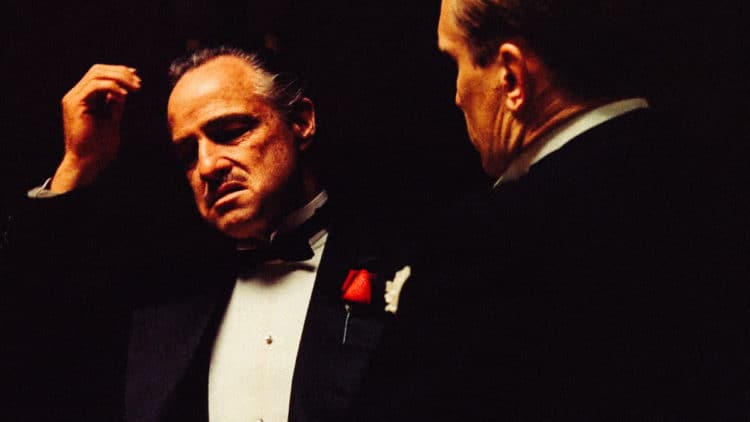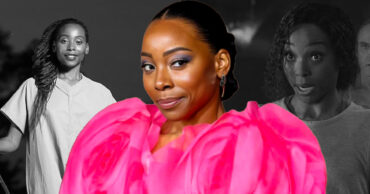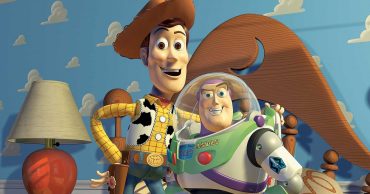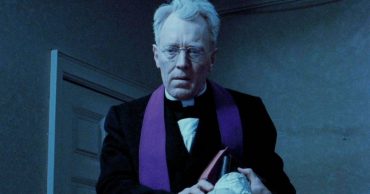
The legendary filmmaker Robert Altman once quipped, “When casting’s done, 90 percent of my creative work is done”. If 90% of directing is casting, then most films are doomed before a single frame is shot because movie roles are rarely perfectly cast. This is why we remember the ones that are. The trouble arises when the bottom line of a film contradicts what best serves it. When big names are contorted into the wrong roles to ensure profits, the work suffers. This is proven time and time again by the Academy Award winners for best acting. It is not too often that an actor or actress wins the Oscar for best performance and they feel miscast. Perhaps it’s ironic then, and certainly fortuitous, that some of the greatest performances in the history of film were given by performers who were not the first choice for the role. Below are eight gleaming examples from the last 50 years of Oscar winning roles that were earmarked for other performers.
Gen. George Patton — Patton (1970)
It is near impossible to envision someone other than George C. Scott in front of that huge American flag giving the resounding patriotic speech as the fiery general. However, Scott was at best the sixth choice for the role! The role of General Patton was offered to Burt Lancaster, Rod Steiger, Lee Marvin, Robert Mitchum and John Wayne before Scott. George C. Scott had a prolific career and was featured in such classics as Taps, The Hustler, and Dr. Strangelove but the title role in Patton is his career defining part. The part that film critic Roger Ebert said “is one of those sublime performances in which the personalities of the actor and the character are fulfilled in one another. Although the role was offered to other actors who were bigger stars it is unimaginable without Scott”. The role snagged Scott Best Actor in 1971, his only Oscar win. George C. Scott was also the first actor ever to refuse an Oscar, referring to the ceremony as a “two-hour meat parade”.
Vito Corleone — The Godfather (1972)
Marlon Brando in the title role of The Godfather is simply one of the most revered and celebrated performances ever captured on screen. The part reestablished Brando as one of the greatest actors in the world, reversing the label of Hollywood burnout. With his transcendent turn as the mafia chief, Brando cemented his mantle among acting royalty. But it was nearly another member of the thespian elite to portray Vito Corleone in the form of Laurence Olivier. The problem was that Paramount studios simply did not have the faith in Brando that the film’s director Francis Ford Coppola did. As a result, Coppola was almost forced to tap the brilliant Olivier, who was his second choice. To add more volatility to the situation, Paramount’s first choice was Danny Thomas. It was only after Marlon Brando impressed the studio brass with an incredible screen test that the dispute was settled. Brando’s performance nabbed him a Best Actor statue and resurrected a legacy.
Nurse Ratched – One Flew Over the Cuckoo’s Nest (1975)
Louise Fletcher’s Nurse Ratched ranks number five on film historian Pater Bradshaw’s all time list of movie villains. The role is as much icy indifference as menacing, playing as the perfect antagonist against Jack Nicholson’s gravitas. As critic Arthur Knight wrote in his original 1975 review, “Fletcher makes this malignant character work like magic”. That magic was nearly never realized on screen. Due to Fletcher’s lack of film experience and star power, more established names were discussed before she ultimately landed the role. The list of names featured Mrs. Robinson herself, Anne Bancroft. Other candidates included Jane Fonda, Colleen Dewhurst, and Geraldine Page. Angela Lansbury was also offered the role who, nine years later, struck television gold with Murder She Wrote. Louise Fletcher’s terrifying performance netted her Oscar gold for Best Actress in a leading role for 1975. Not bad for her second ever screen role.
R.P. McMurphy — One Flew Over the Cuckoo’s Nest (1975)
As Randle Patrick McMurphy, Jack Nicholson is flawlessly effervescent and tragically captivating. In a career of dazzling roles, Jack’s turn in One Flew Over the Cuckoo’s Nest soars above them all. As the 1975 NY Times review states, “Mr. Nicholson slips into the role of Randle with such easy grace that it’s difficult to remember him in any other film”. But like his Oscar winning costar Louise Fletcher, he was not the first choice for the role. Producer Michael Douglas (yes, that Michael Douglas) earmarked Gene Hackman for the lead role but he turned the role down. So did Hollywood heavyweights Marlon Brando and Steve McQueen. Director Milos Forman’s top choice was Burt Reynolds. It was not until Michael Douglas viewed Nicholson’s dynamic magnificence in 1973’s The Last Detail that he changed his tune. In a 2015 interview, Douglas expounded: “At that point, Jack had done passive characters in Easy Rider and Five Easy Pieces, but when I saw him as the flamboyant but sensitive shore patrol-man in The Last Detail, I knew he could play the part”. Douglas and Nicholson both won Oscars for their work. The film won Best Picture and Jack won Best Actor for the performance of a lifetime in a lifetime of great performances.
Gordon Gekko — Wall Street (1987)
“Greed is good”. Truly one of the sexiest lines ever uttered on film, shamelessly delivered by one of the most dashing and deliciously devilish characters of all time. As the morally ambiguous corporate raider Gordon Gekko, Michael Douglas drips seductive villainy. Douglas would later remark, “Gekko was as good a villain as you’re ever going to find”. Greed being good seems impossible if not voiced through Douglas’ distinctive raspy resonance but that was almost the case. Douglas barely rounded out the top five as candidates for Gekko. Director Oliver Stone favored both Richard Gere and Warren Beatty ahead of him. It has also been reported that James Woods and William Petersen both passed on perhaps the best bad guy role of the 80s. When the role eventually fell to Michael Douglas, he rode the part to a Best Actor Oscar in 1988. Gordon Gekko however would be forever emblazoned as the characterization of an era.
Clarice Starling — The Silence of the Lambs (1991)
Jodie Foster had already won an Academy Award when she got the part of the heroine in the 1991 blockbuster. But her role of FBI trainee Clarice Starling in The Silence of the Lambs would become not only the role most associated with her, it would provide the archetype for an entire generation of cinematic character. When the American Film Institute ranked its 50 greatest heroes of the first 100 years of cinema, Foster’s Clarice Starling came in at number 6 and the highest ranking heroine. But among Foster’s many fans, Lambs’ director Jonathan Demme was not one. In fact, Foster was not in his top three choices for the role. Demme first wanted Michelle Pfeiffer as the female agent. The pair had a hit a few years earlier in 1988 with Married to the Mob and Demme thought the part suited her. Pfeiffer disagreed who, according to Demme, was “concerned about the darkness of the piece”. Next up was Meg Ryan who was reportedly “slightly offended” at the offer. Demme then wanted Laura Dern but the execs vetoed that due to her lack of star power. Upon the producer’s insistence, Foster was offered the part and walked away with another Oscar for Best actress. Her second in a four year span.
Dr. Hannibal Lecter — The Silence of the Lambs (1991)
Dr. Hannibal Lecter is the most terrifying kind of evil – civil and calculating. Sir Anthony Hopkins plays this role with a reserved cerebral virtuosity. He manages to make a cannibalistic serial killer likable and is intensely charming while doing it. Rated as the number one villain of all time by the American Film Institute, Hopkins brings a type of tangible vulnerability to soulless humanity. Peter Bradshaw is rather succinct with his opinion as he states, “Anthony Hopkins’ performance as Lecter is an uproarious technical masterpiece”. However, as with Jodie Foster in the female lead, director Jonathan Demme had another actor in mind for the male lead. Demme has disclosed that his original choice to play “Hannibal the cannibal” was Sean Connery. When the original 007 passed on the role, Demme reluctantly trusted the intricate role to Hopkins who at the time was best known for his superb stage work. With the film’s conclusion, Dr. Lecter would have an old friend for dinner and Sir Anthony would score the Oscar for Best Actor, his only Academy Award.
Freddie Mercury — Bohemian Rhapsody (2018)
As far as movie bios go, Bohemian Rhapsody garnered mixed reviews. The film tells the story of the rock band Queen and its electrifying front man Freddie Mercury. While most found the picture entertaining, many criticized it as the cookie cutter sugar coated version of an extraordinary story. Bohemian Rhapsody has been referred to as a “glorified Wikipedia page”. Roger Daltrey called the script “very thin”. However, the one unanimous opinion about the film seems to be the outstanding performance that Rami Malek gave as Freddie Mercury. Film critic and magazine editor Mara Reinstein pretty much sums things up with her sentiments: “How do you turn an ok movie into a good one? Five words: Rami Malek as Freddie Mercury”. But the exquisite Malek nearly never got the chance to intoxicate audiences as Mercury as he was not the first choice for the role. As early as 2010, there were plans in the works for a Queen biopic. At that time, Queen guitarist Brian May stated, “We have Sacha Baron Cohen, which will probably be a shock to a lot of people, but he’s been talking with us for a long time”. Yes, the Oscar nominated Cohen, famous for such roles as Ali G, Brüno, and Borat was earmarked to play Freddie Mercury from the beginning of the project. Ultimately, creative differences between Cohen and the production team led to a parting of ways. Apparently Cohen wanted to take the picture in a more realistic, darker direction whereas the studio wanted to keep the film more of a feel good vibe and within the PG-13 realm. Shortly after the release of Bohemian Rhapsody, Queen drummer Roger Taylor said of Cohen, “I don’t think he took it seriously enough – didn’t take Freddie seriously enough”. Luckily, the part fell to Rami Malek and he did take it seriously enough. Malek rocked movie and music fans the world over and was named champion of the Best Actor category for 2018.
 Follow Us
Follow Us



